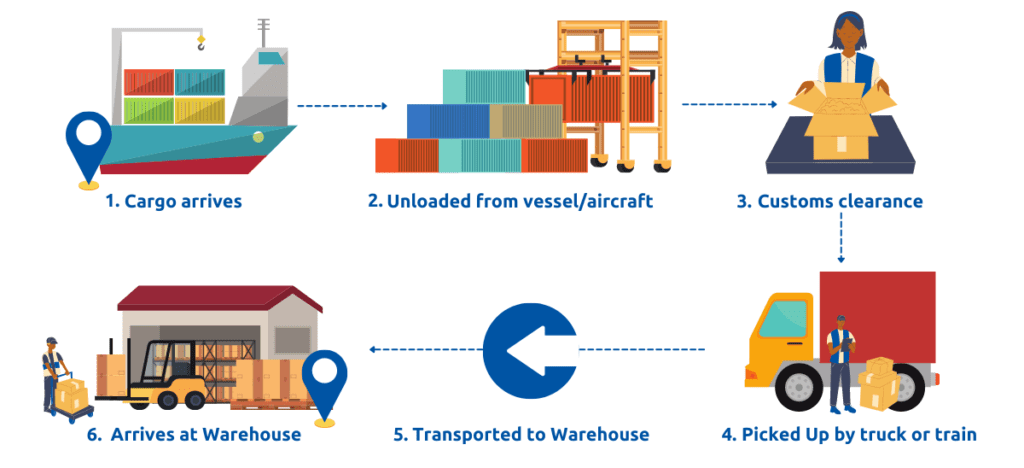5 Common Mistakes U.S. Importers Make Without Local Agents
As global trade expands and production hubs shift, many U.S. companies have started looking toward Bangladesh for cost-effective and scalable sourcing. With its rapidly developing manufacturing sector, favorable trade agreements, and a large skilled labor force, Bangladesh is becoming a key player in global supply chains. However, without a local sourcing agent, many U.S. importers find themselves facing unexpected challenges.
Sourcing overseas without local representation can lead to miscommunication, production errors, legal issues, and costly delays. This article highlights five of the most common mistakes U.S. importers make when navigating the Bangladeshi market without a local agent—and why partnering with the bestsourcing agent Bangladesh can make all the difference.
1. Misunderstanding Product Requirements and Specifications
One of the most significant issues importers face is the misalignment of product expectations. When dealing directly with manufacturers overseas, technical specifications, packaging requirements, and quality expectations often get lost in translation. This can lead to defective or non-compliant products.
Manufacturers in Bangladesh may not always be familiar with U.S. standards unless they are clearly outlined and regularly monitored. Working with a bestsourcing agent Asia ensures proper communication, documentation, and production alignment from start to finish.
By having someone on the ground, U.S. buyers avoid relying solely on email or messaging apps for crucial information exchange, which can be inefficient and error-prone.
2. Lack of Supplier Vetting and Background Checks
Many importers source vendors from trade shows or online marketplaces without verifying their track record or capabilities. This increases the risk of partnering with unreliable suppliers who may not meet deadlines or maintain consistent quality.
A local sourcing agent performs thorough background checks, factory audits, and in-person evaluations. The bestsourcing agent Bangladesh has established relationships with trusted manufacturers and can distinguish genuine producers from intermediaries or brokers.
Such vetting helps avoid common scams, misrepresentation, or overpromising, ensuring that your chosen supplier has both the capacity and credibility to deliver.
3. No Real-Time Oversight During Production
Quality control is an essential component of the manufacturing process. Without a local presence, importers must rely on photos, videos, or third-party inspectors who may not be as invested in ensuring production meets expectations.
Delays, defects, or last-minute changes often go unnoticed until the shipment arrives at a U.S. port—by then, it’s too late and too expensive to fix.
When partnered with a bestsourcing agent Asia, importers gain real-time insights into each production phase. Agents conduct in-line inspections, troubleshoot problems early, and prevent quality issues before shipment.
This added oversight also encourages the supplier to stay accountable and consistent with agreed timelines and quality standards.
4. Errors in Shipping and Documentation
International shipping requires a deep understanding of documentation, customs compliance, packaging regulations, and labeling protocols. Even a small oversight—such as an incorrect HS code or missing certificate—can result in clearance delays or fines at U.S. customs.
Local agents are well-versed in the export protocols of Bangladesh and the import requirements of the United States. They ensure that all documents, including commercial invoices, packing lists, and certificates of origin, are correctly prepared and submitted on time.
Partnering with a bestsourcing agent Bangladesh helps avoid customs bottlenecks and streamlines the export-import process, saving both time and money for U.S. buyers.
5. Failure to Navigate Cultural and Business Norms
Doing business in Bangladesh involves more than just contracts and pricing. Local business culture values trust-building, face-to-face meetings, and negotiation through relationship-based interactions. U.S. buyers who approach deals with only Western negotiation tactics may unintentionally offend or confuse suppliers.
Understanding holidays, local working hours, religious customs, and communication styles is crucial for maintaining productive partnerships. A local agent serves as a cultural bridge, helping to translate not just language, but expectations and norms.
Engaging a bestsourcing agent Asia allows companies to navigate business etiquette properly, ensuring smoother negotiations, timely production, and mutual respect.
Final Thoughts
The promise of lower costs and increased production flexibility in Bangladesh is attracting more U.S. importers each year. But without proper on-the-ground representation, the risks often outweigh the benefits. Missteps in quality control, supplier selection, and documentation can erode margins and damage brand reputation.
Hiring a bestsourcing agent Bangladesh is not just a precaution—it’s a smart investment that ensures success at every stage of the sourcing journey. With the right agent in place, importers can focus on growth and expansion while their local partner manages the operational complexities.

